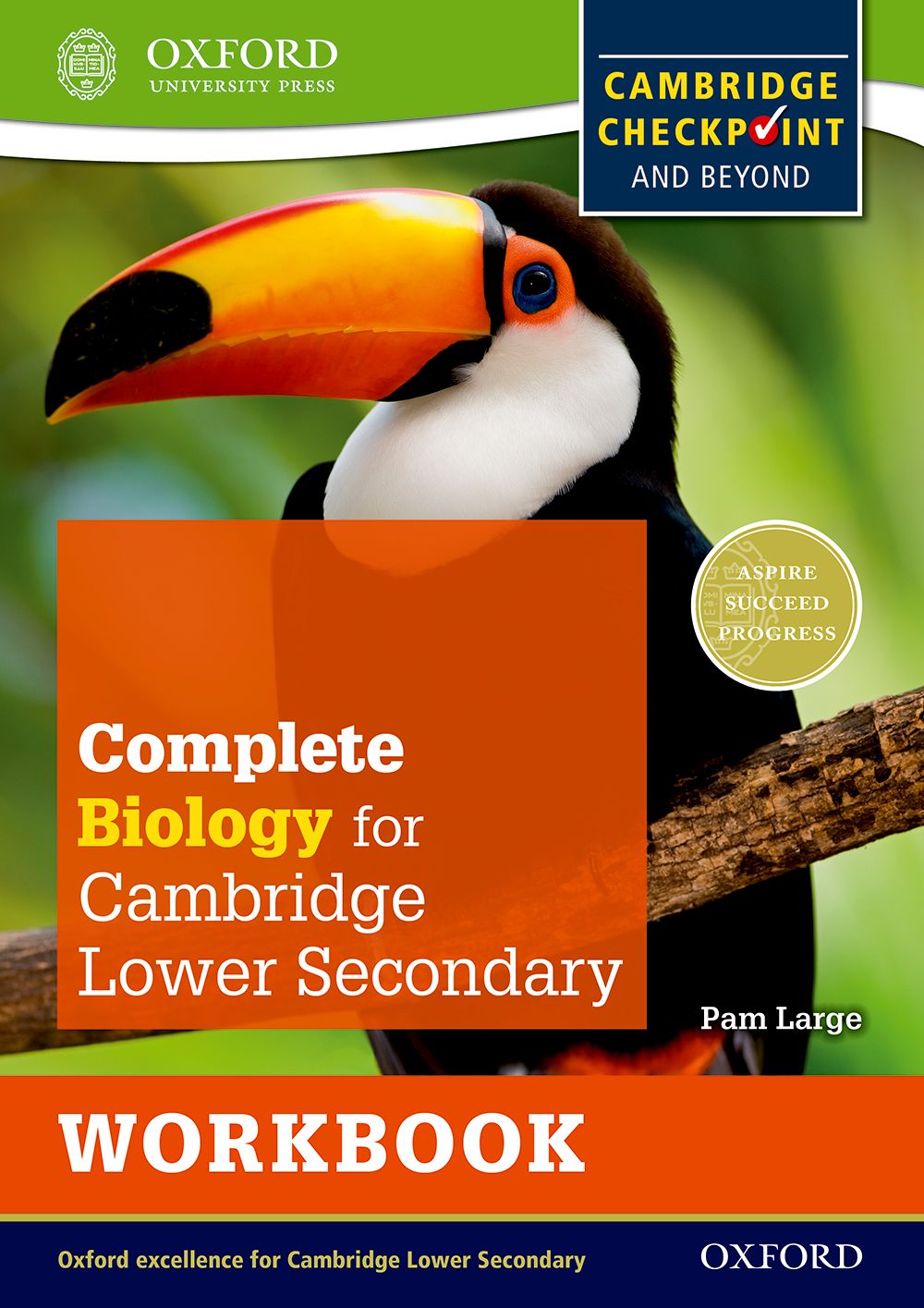Ensure your students reach their full potential at Cambridge Checkpoint level and enable them to confidently leap into Cambridge IGCSE® science study with a solid foundation in Biology. Suitable for independent study, this Workbook includes a wide range of extra revision and practical material that closely supports all the material in the Student Book, to help students consolidate their learning. Practice tests are set out the Cambridge Checkpoint way, so students can tackle assessments with confidence. Crucial rigour is built in from the start, with exercises designed to challenge and stretch all abilities, and extension material that smooths the transition
to Cambridge IGCSE. Plus, it's matched to the Cambridge syllabus, so you know it's comprehensive.
Features
- Consolidate essential knowledge and skills, using activities mapped to the Cambridge Lower Secondary syllabus, and matched to materials in the Student Book
- Reinforce learners' understanding and confidence with a wide range of revision materials and extra exercises, designed to stretch all abilities
- Thoroughly prepare learners for progression tests and the Cambridge Checkpoint test, using Cambridge-style practice questions
- Encourage top achievement via extension material, preparing students for the step up to Cambridge IGCSE
- All answers are provided in the Teacher Pack
Stage 7
1 Plants
1.1Leaves, stems, and roots
1.2Questions, evidence and explanations
2 Humans
2.1The human skeleton
2.2Muscles and movement
2.3Organ systems
2.4The circulatory system
2.5Studying the human body
2.6Extending lives
3 Cells and organisms
3.1The characteristics of living things
3.2Microbes
3.3Louis Pasteur
3.4Testing predictions
3.5Useful micro-organisms
3.6Planning investigations
3.7Harmful micro-organisms
3.8Plant and animal cells
3.9Specialised cells
3.10Nerves
3.11Tissues and organs
4 Living things in their environment
4.1Habitats
4.2Food chains
4.3Feeding ourselves
4.4Changing the planet
4.5Preventing extinction
4.6Obtaining energy
4.7Growing fuels
5 Variation and classification
5.1Variation
5.2Causes of variation
5.3Species
5.4Classification
5.5Vertebrates
5.6Classification of plants
Stage 8
6 Plants
6.1Why we need plants
6.2Asking scientific questions
6.3Water and minerals
7 Diet
7.1Food
7.2Managing variables
7.3A balanced diet
7.4Deficiencies
7.5Choosing foods
8 Digestion
8.1The digestive system
8.2Enzymes
8.3Using enzymes
9 Circulation
9.1Blood
9.2Anaemia
9.3The circulatory system
9.4Identifying trends
9.5Diet and fitness
10 Respiration and breathing
10.1Lungs
10.2Respiration and gas exchange
10.3Anaerobic respiration
10.4Smoking and lung damage
10.5Communicating findings
11 Reproduction and fetal development
12.1Reproduction
12.2Fetal development
12.3Twins
12.4Adolescence
12 Drugs and disease
12.1Drugs
12.2Disease
12.3Defence against disease
12.4Boosting your immunity
Stage 9
13 Plants
13.1Photosynthesis
13.2Preliminary tests
13.3Plant growth
13.4Phytoextraction
13.5Flowers
13.6Seed dispersal
14 Adaptation and survival
14.1Adaptation
14.2Extreme adaptations
14.3Survival
14.4Sampling techniques
14.5Studying the natural world
15 Energy flow
15.1Food webs
15.2Energy flow
15.3Decomposers
15.4Changing populations
15.5Facing extinction
15.6Maintaining biodiversity
16 Human influences
16.1Air pollution
16.2How scientists work
16.3Water pollution
16.4Saving rainforests
17 Variation and classification
17.1Using keys
17.2What makes us different?
17.3Chromosomes
17.4Investigation inheritance
17.5Selective breeding
17.6Developing a theory
17.7Darwin's theory of evolution
17.8Moving genes
17.9Using genes
Practice questions
Exam questions
Glossary
Cambridge Lower Secondary learners, aged 11-13


